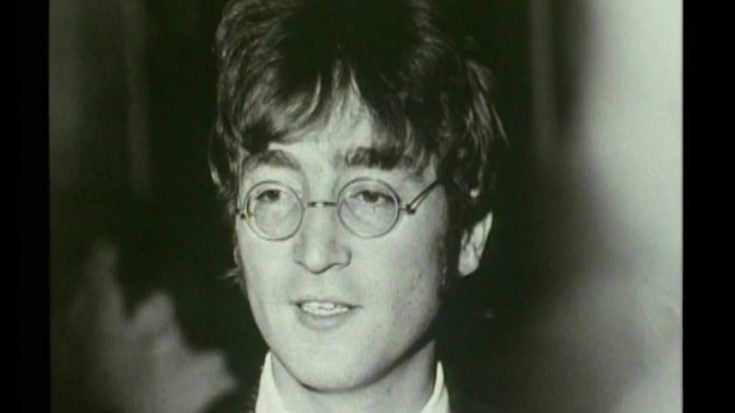Explore How John Lennon Really Thinks About Love

via Real Stories / YouTube
John Lennon, the iconic Beatle known for his sharp wit, penned countless anthems about love. From the swooning melodies of “She Loves You” to the yearning introspection of “Imagine”, his music resonated with millions yearning for connection and understanding.
Dig beneath the surface of Lennon’s lyrics and you’ll discover a kaleidoscope of emotions. His early songs, fueled by youthful infatuation, captured the giddy butterflies and heartache of teenage love.
But as he delved deeper into his own psyche and the complexities of the world, his perspective shifted. Love became a catalyst for peace, a beacon of hope in a society marred by conflict.
This transformation wasn’t just artistic; it was deeply personal. Lennon’s tumultuous relationship with Yoko Ono, often met with public scorn, became a testament to his evolving understanding of love. He saw in her a kindred spirit, a collaborator not just in music but in life.
https://twitter.com/literarynonense/status/1760468620839108740
John Lennon had poignant views about love
John Lennon wasn’t known for sugarcoating things, and his thoughts on love in a 1980 interview were no exception. He declared that clinging to love or trying to “possess” it was the surest way to lose it.
“Every time you put your finger on it, it slips away,” he warned, comparing love to something elusive that changed under scrutiny. He likened asking “how to make it stay” to staring directly at the sun, blinding and counterproductive.
But Lennon wasn’t advocating for passive neglect. He believed in nurturing love, comparing it to a delicate flower that needs tending. He acknowledged work was involved, but not through control.
Instead, he championed a more subtle approach, like “peripheral vision” – acknowledging love without smothering it. This metaphor suggests appreciating love’s presence without fixating on it, allowing it to bloom freely.
https://twitter.com/flowersmacca70s/status/1759304401913536656
John’s marriage to Yoko Ono
In a candid interview, John and Yoko were asked about their decision to get married. John’s answer wasn’t about societal expectations, but about something deeper. “Because we’re romantic,” he declared, acknowledging the love that drew them together. He also highlighted a “difference” in their connection, suggesting it transcended traditional ideas of love and partnership.
John then drew a surprising parallel between his marriage to Yoko and his divorce from Cynthia. He compared the sudden finality of divorce papers to the formalization of marriage. Both, he argued, despite not initially feeling significant, held a deeper meaning upon their officialization.
“No matter what the intellectual thing is — we lived together for two or three years — when the divorce papers went through and they said, ‘You are free,’ we felt free,” the iconic Beatle recalled.
John further articulated by acknowledging the societal perception of marriage as not hip. However, he was unfazed by such judgments. This aligns with his musical evolution after leaving The Beatles, where he often defied trends and carved his own creative path.
The philosophy behind “All You Need Is Love”
John Lennon’s music was awash in love songs, from the playful “Love Me Do” to the anthemic “All You Need Is Love”. But the latter became a surprisingly contentious point after The Beatles’ dissolution. Fans, with a touch of cynicism, pointed out the song’s message seemed hollow given the band’s split.
John, ever the truth-teller, addressed this in a PBS interview. He reaffirmed his love for Paul, George, and Ringo, highlighting that love doesn’t vanish simply because you don’t share a living space.
However, John wasn’t naïve. While he believed in the ideal of “All You Need Is Love”, he recognized it wasn’t just a feel-good slogan. He envisioned a profound societal transformation before love could truly become the driving force.
John’s vision extended beyond personal connections. He saw love as a transformative force capable of reshaping the world. But achieving that transformation, he argued, required more than mere words. It demanded a fundamental shift in our values, a journey he was committed to advocating for, one song, one interview at a time.












